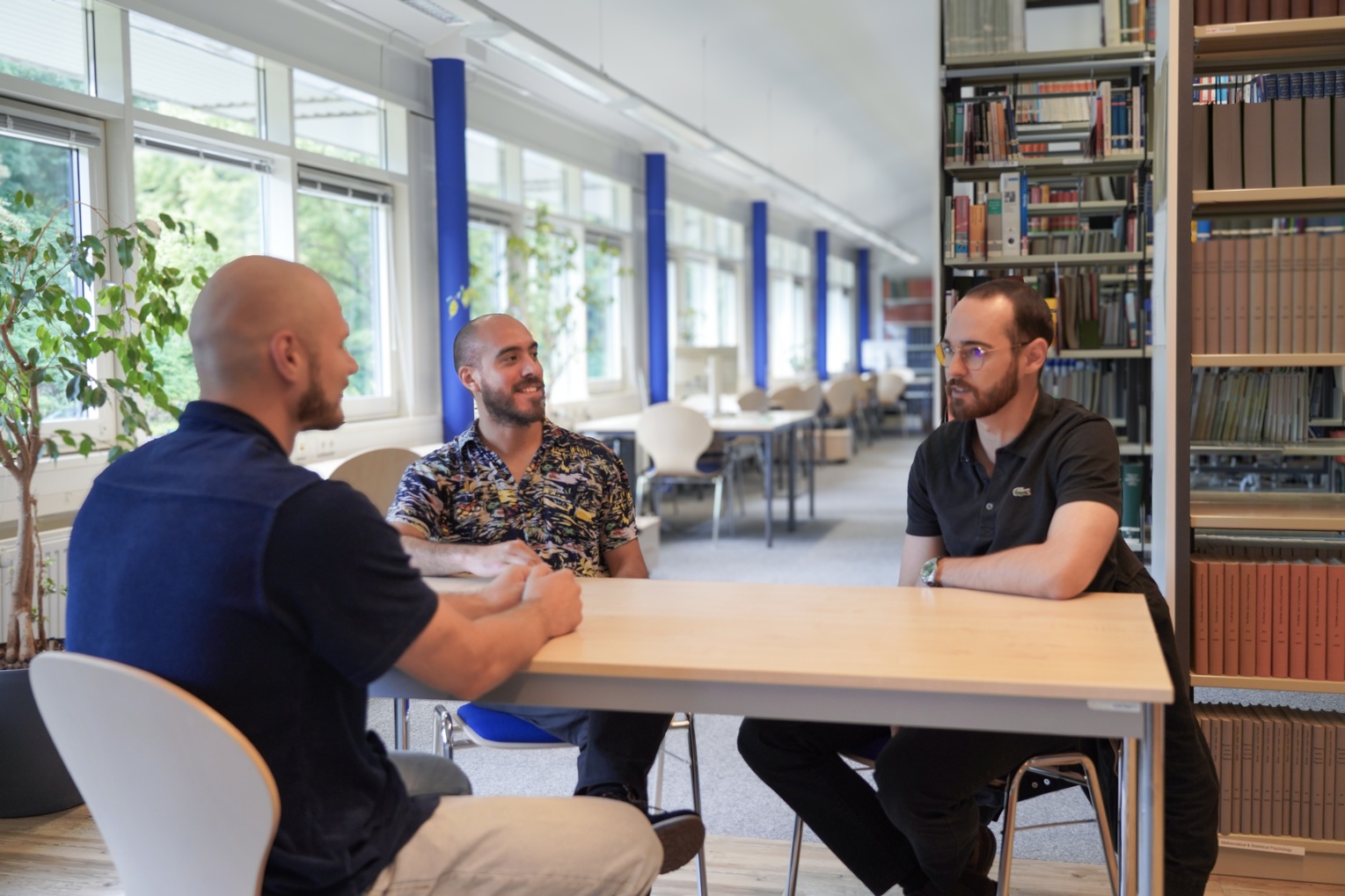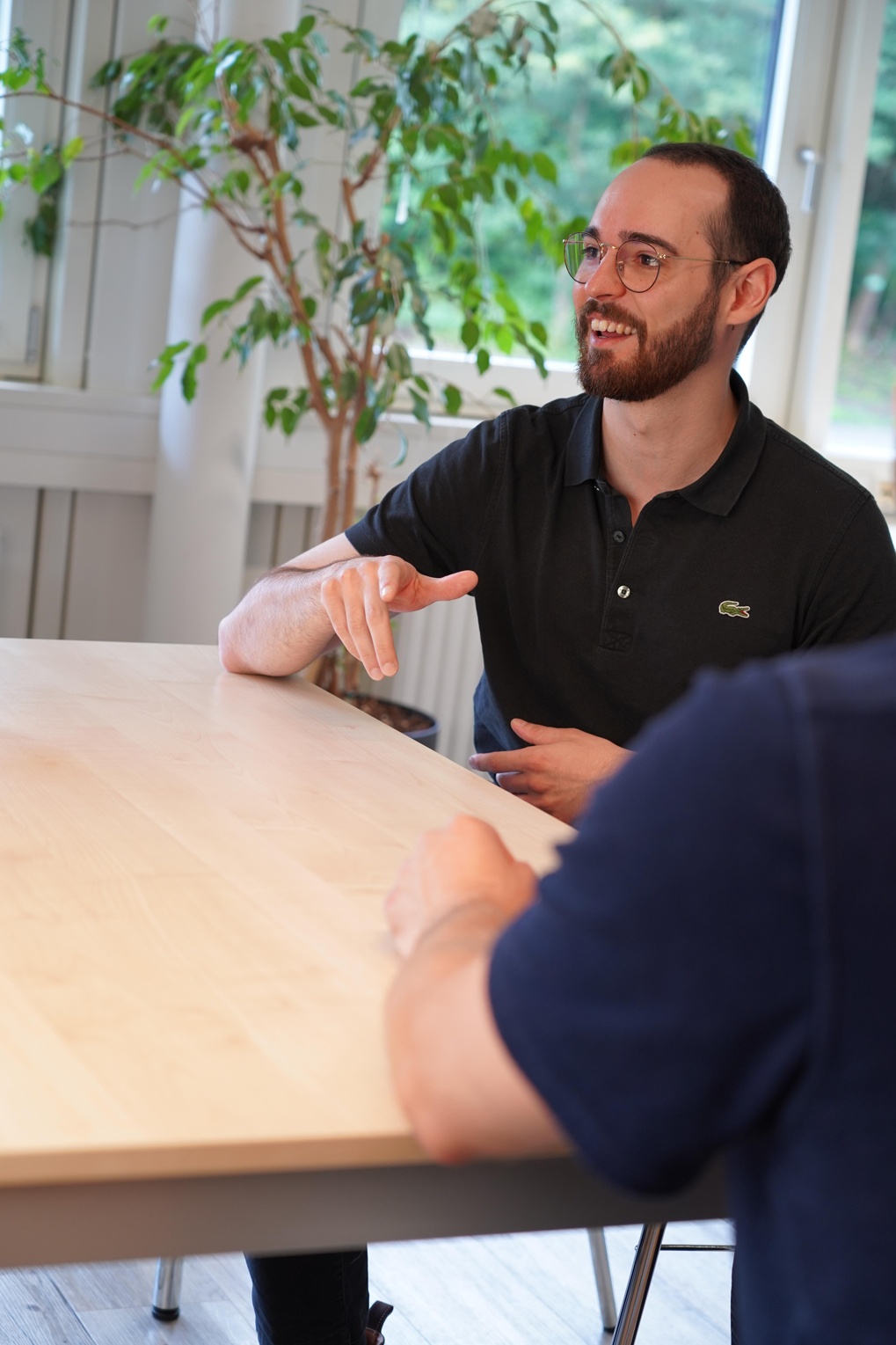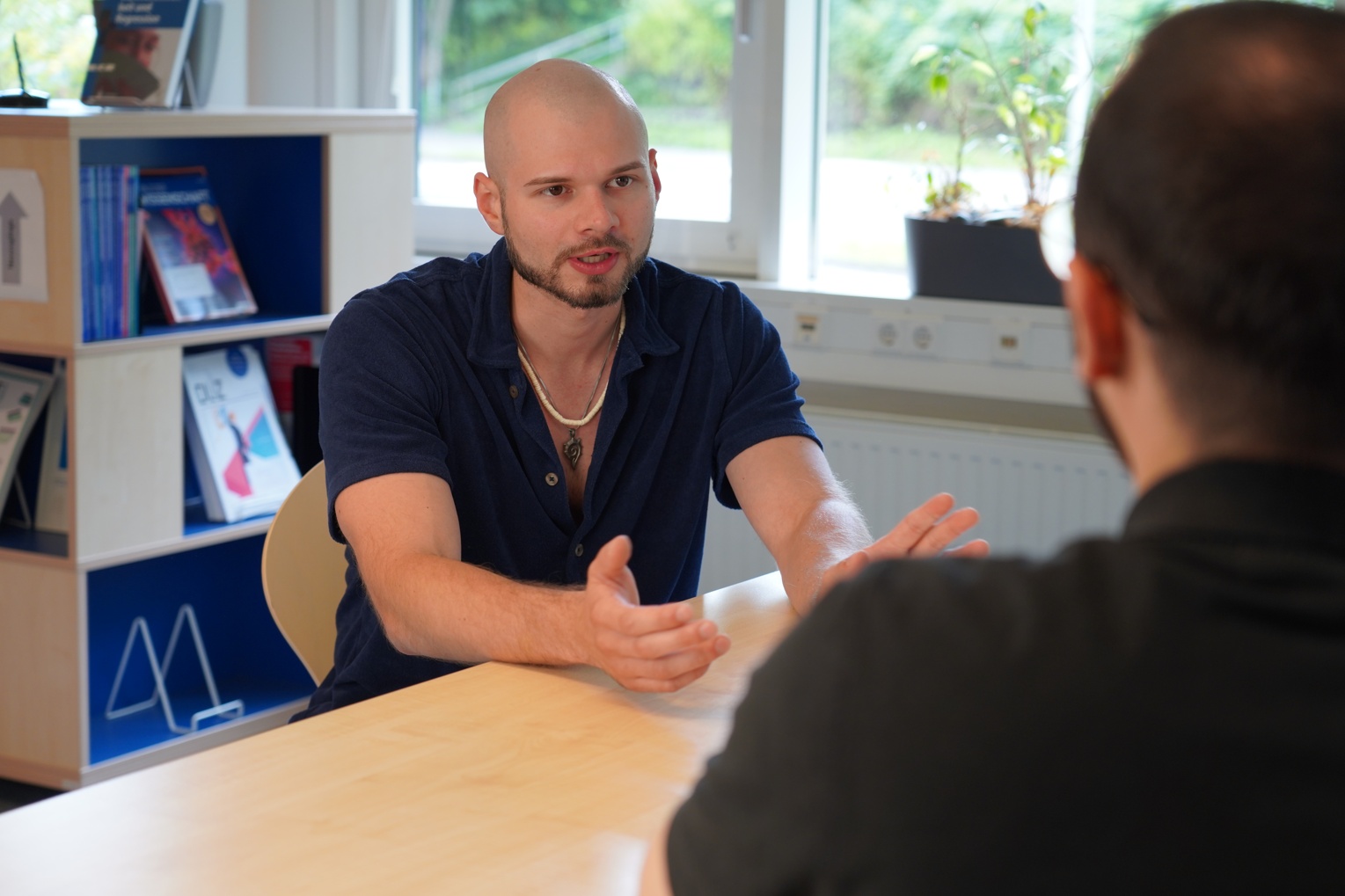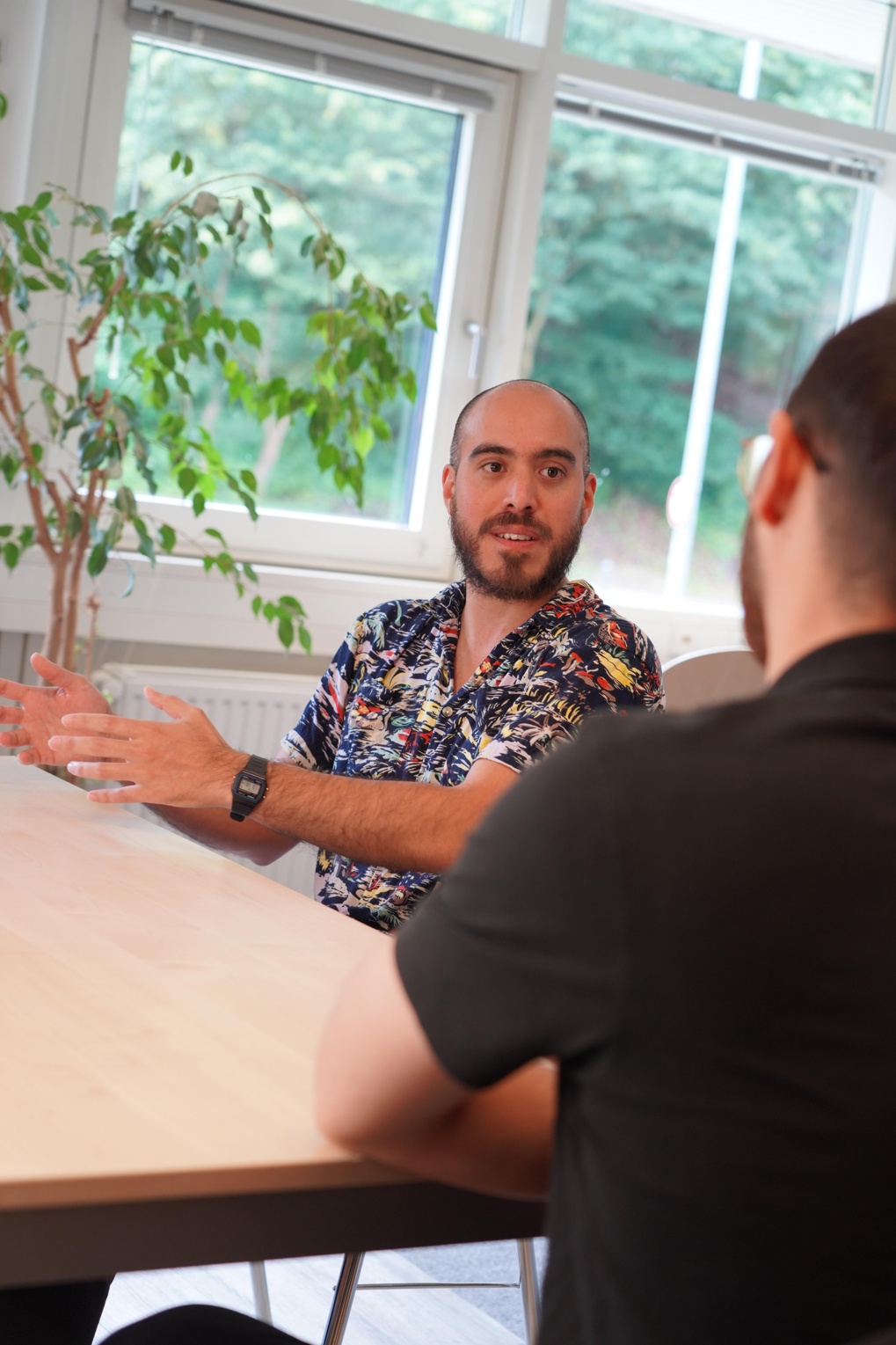Research meets art: Science Slam at the IPN Summer Conference
The IPN Summer Conference, which has been held once a year since the coronavirus pandemic, is a great opportunity for young scientists to present their research to a wider audience. This year, three young scientists from the IPN Summer Conference presented a video at the Science Slam that we would now like to share with a wider audience.
Adrian Dedinca from Schleswig-Holstein, Noah-Manuel Michael from Dortmund, and Daniel Mora-Melanchthon from Santiago de Chile use the video to bridge the gap between their research on artificial intelligence, language processing, and critical thinking.
Adrian Dedinca from Schleswig-Holstein, Noah-Manuel Michael from Dortmund, and Daniel Mora-Melanchthon from Santiago de Chile build a bridge between their research on artificial intelligence, language processing, and critical thinking and their personal passions for music, poetry, and visual art.
The three have been pursuing their doctorates at the IPN and IPL since this year. We spoke with them about their video, their research, and their impressions of living and working in Kiel.
IPN: How long have you been working at the IPN, and what is your research focus?

Adrian: I have been at the IPN since February and I am working the project „Critical Information Processing“. The project focuses on critical thinking ability, specifically on comprehension and evaluation of arguments. Within my dissertation, I want to focus on individual differences in critical thinking, such as epistemological beliefs and epistemic curiosity.
Noah: I am technically not employed at the IPN, but at the IPL, where I started working in March. Daniel and I are part of Andrea Horbach‘s research group, which is situated both at the IPN and the IPL. For my dissertation, I want to focus on the development of personalized and adaptive LLM-based chatbot solutions for language learners.
Daniel: I have been at the IPN since April, and my research focuses on Automated Essay Scoring, focusing on how we can increase the pedagogical value of machine learning models by making them more interpretable.
IPN: Do you work together on projects?

Adrian: We do not work on projects together, unless they are creative, such as our science slam. However, we do sit in the same office and exchange ideas about our research, and the bigger picture of AI and critical thinking. We also enjoy hanging out together in our free time.
IPN: How did the idea for your science slam video come about and what does the video and participating in the science slam mean to you?
Adrian: We had previously discussed our interests in poetry, music and visual art. Daniel came up with the idea to combine our interests, and process our research ideas creatively. First and foremost, we enjoyed the creative process together. It was great to see that our enthusiasm seemed to spread to the audience.
IPN: How did the audience react to your presentation?
Adrian: We wanted to follow up the video with a discussion about AI and critical thinking. At first we were met with silence, but quite quickly, a vital discussion ensued, and people began sharing the thoughts and feelings the video evoked in them, which we were very happy about.
IPN: What fascinates you about working with AI?
Adrian: AI enables us to complete tasks, that used to take hours, in mere minutes or even seconds. While this is convenient, it also raises important questions. How far can we trust AI to perform adequately? What is left for us to do, when AI surpasses human capabilities in some aeras? I believe we need to critically evaluate AI‘s purpose (and perhaps our own as well), and how we want to work in an increasingly digitalized world.

Noah: GenAI has the potential to redefine how we study foreign languages. We are no longer dependent on human language exchange partners for practicing our conversation skills and receiving feedback. Overall, talking to a machine feels like a much lower-stakes interaction than talking to an actual person. Therefore, even learners with speaking anxiety can now practice their language skills in real time. I don‘t think learning a foreign language has ever been more accessible.
Daniel: Working with AI is like receiving an answer from a large group of collaborators all at once. It is beneficial for some tasks, but challenging or even misleading for others. It allows us to enhance our skills and be more productive. However, it also introduces risks we must be aware of, such as bias, hallucinations, and content homogenization.
IPN: What do you like most about living and working in Kiel?
Adrian: Kiel is a wonderful city with wonderful people. Almost always, there is something going on, such as the recent Kieler Woche. And if not, one can relax with a Fischbrötchen at the Kiellinie, at the beach, or in the park.
Noah: I also love the proximity to the sea. While the weather can be a little bit nasty in winter, I really enjoy the more temperate summers. It‘s mid-July and I haven‘t even had to use my fan yet. I also enjoy the Northern German accent. You know you are in the right part of Germany when people greet you with „Moin!“.

Daniel: I would like to highlight its size. It is not big enough to make you feel overwhelmed by buildings, nor so small it lacks relevant services. It also allows for a variety of animals and plants to cohabitate the same territory. Besides moles and hedgehogs, you get to see deer as well.
IPN: What are your plans or goals for the next steps in your research?
Adrian: Our goals are to engage in innovative research, have inspiring conversations within the IPN and at conferences and, of course, to publish an inconceivable number of papers. And who knows, maybe more creative projects?
IPN: Thank you very much for the interview.
Adrian Dedinca grew up in Schleswig-Holstein and, after a five-year stay in the Netherlands to study psychology, is back „im echten Norden“ to pursue research on critical thinking. Whenever he is not in the WiPa, you can find him at live music events, the record store around the corner, or at home playing guitar.
Noah is from Dortmund and has lived and studied in Germany, the Netherlands, Poland, and Sweden. His heart beats for the Ruhrgebiet, but he feels that in Kiel, he has finally found a place where he is comfortable settling (at least until he finishes his PhD studies). His dream is to land a remote job and travel the world while coding up apps for language learners.
Daniel is from Santiago, Chile, but has lived in different cities and countries looking for new projects that relate language, education, and machine learning. He is glad that he can call Kiel his new home for the next years to come, where he hopes to learn more about the German language and culture. And who knows, maybe in the future he will be able to open a beer with a lighter.









